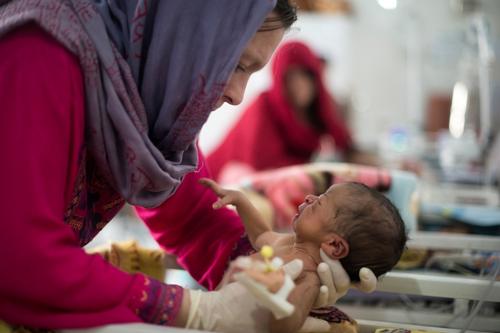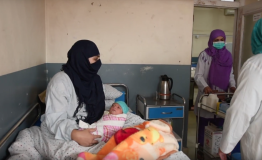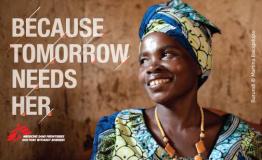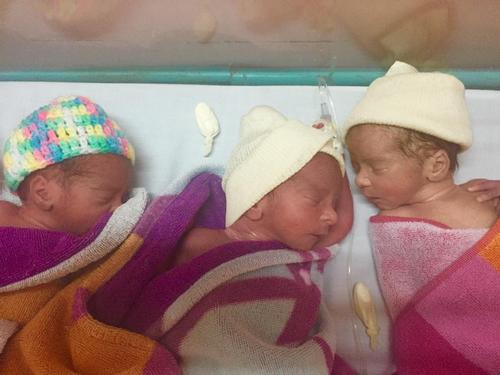For International Women’s Day 2017, Médecins Sans Frontières puts the spotlight on pregnancy and childbirth in Afghanistan, one of the world’s most dangerous countries to give birth in.
March 8 has always been a special day for me and my family – not only is it International Women’s Day, it’s also my birthday. Throughout my childhood, we often celebrated my birthday by attending International Women’s Day events.
Perhaps that spirit of advocating on behalf of women influenced my career choice as an obstetrician, ensuring that women are able to give birth safely.
One of the most dangerous countries to give birth in is Afghanistan. There are an estimated 396 maternal deaths for every 100,000 live births there. By comparison, the figure in Australia is six maternal deaths for every 100,000 births.
Why are Afghani women so much more likely to die during pregnancy and childbirth?
During my field placement at Médecins Sans Frontières’ maternity hospital in Khost, Afghanistan, I met many women who shed some light on the complex answers to this question.
In Afghanistan, two out of every three deliveries take place at home, without a skilled birth attendant. In Khost we frequently saw women who had attempted to deliver at home before coming into the hospital with a complication, such as post-partum haemorrhage.
I remember one woman who had delivered at home and then started bleeding profusely. She had been able to access some care at home but because it was night time she was unable to travel safely to the hospital. By the time she arrived the next morning she was moribund, completely unresponsive and with a very weak pulse. Despite immediate medical attention, she unfortunately passed away.
Many women now prefer to come to the hospital to deliver but it can still be very difficult to access. They often have to travel long distances and road travel can be extremely dangerous.
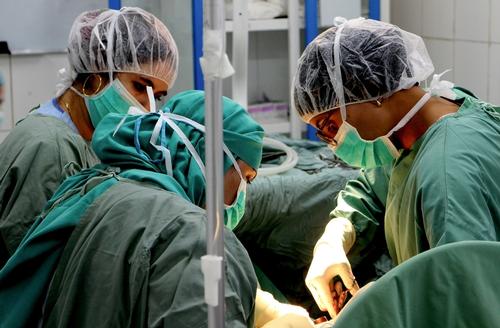
In many parts of Afghanistan there’s very little preventive and antenatal healthcare available, so women and their caretakers don’t always recognise the danger signs of pregnancy and when they should seek assistance.
Cultural factors
Another issue is that women are not usually the decision-makers. So even if they think they need medical care, that decision is usually made by their husbands and mothers-in-law. In addition, women may need a male caretaker to accompany them to hospital and to consent to any surgery or family planning method.
In obstetrics, we have a mantra for the risk factors for maternal deaths: ‘too early, too late, too many and too close together’. Sadly, all these elements apply in Afghanistan.
Afghani women tend to get married and have children early in life, and because they are expected to have a lot of children, they often continue having babies into their 40s. Complications often occur at these two extremes of the age spectrum so our facilities see a lot of women giving birth to their first child and many older women having their ninth or tenth.
On top of that, women often don’t have the capacity to space out their births because they can’t access family planning, and aren’t in control of decisions around their fertility. Pregnancies that are too close together are risky for mother and baby because the woman’s body may not have time to recover – for instance to replace nutrients such as iron, calcium and folate, which are depleted during pregnancy.
Although the risks are unacceptably high for women giving birth in Afghanistan, Médecins Sans Frontières’ work is making an impact.
Changing attitudes
In places like Khost, where there is such a huge need for maternal services, our facility is well respected for the quality of care it provides. Our presence is changing attitudes towards where women give birth and the importance of having a skilled birth attendant. During my placement we held a jirga, a meeting with community leaders, where we discussed the idea that to be an honourable man, it’s important to take your wife to hospital to ensure she has a safe delivery.
We focus on caring for women with complicated deliveries who require the high-level care that Médecins Sans Frontières can provide. In 2016 we strengthened our health promotion activities to improve recognition of complications throughout the community, including through radio messaging. We’ve also worked with private clinics to ensure that women with complications are swiftly referred to our hospital.
In all our projects, we emphasise teaching and training local doctors and midwives, which is incredibly important because international staff come and go but local staff stay . Historically, women’s lack of education meant there were few female doctors and midwives to look after women in labour. Yet, culturally, many families only seek care from a female. Training local female staff means that we’re leaving something positive behind. And as well as training within our facilities, we’ve also trained midwives in local health centres to improve care of normal deliveries.
Just the sheer numbers of babies Médecins Sans Frontières delivers in its four maternity services across Afghanistan makes a huge impact. In 2016, more than 66,000 babies were delivered by our teams in Afghanistan, which equates to more than 180 babies every day. In Khost, approximately one out of three babies born in the province is delivered in our maternity hospital. So many women and babies are surviving as a result of Médecins Sans Frontières being in Afghanistan.



